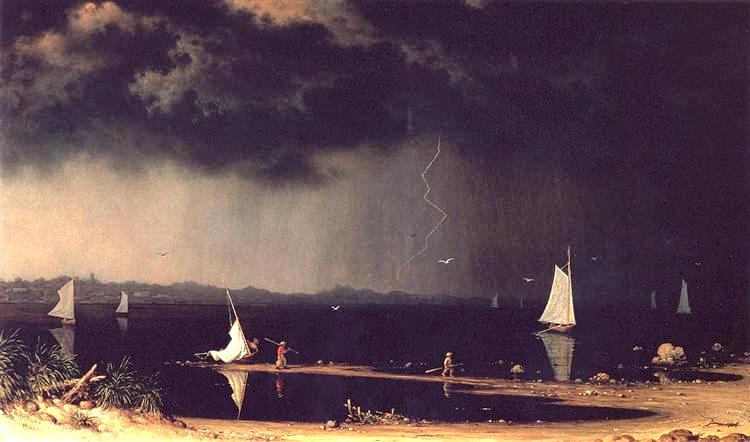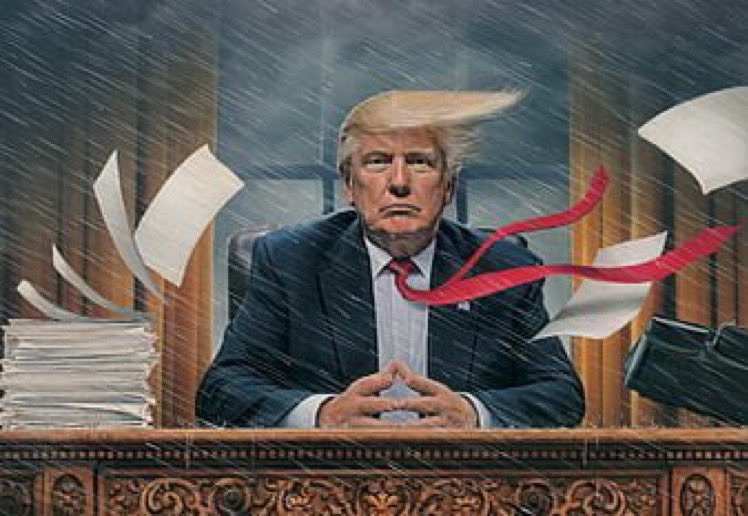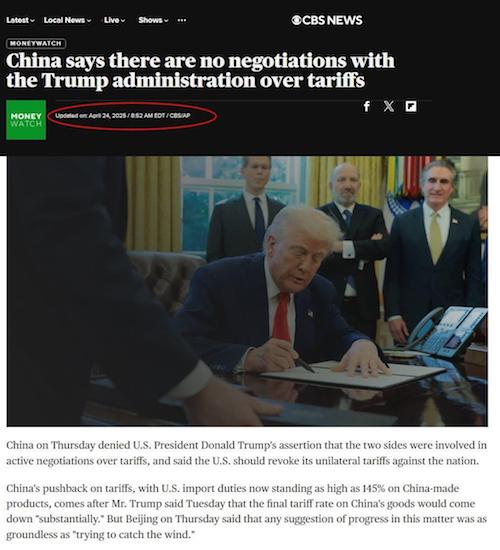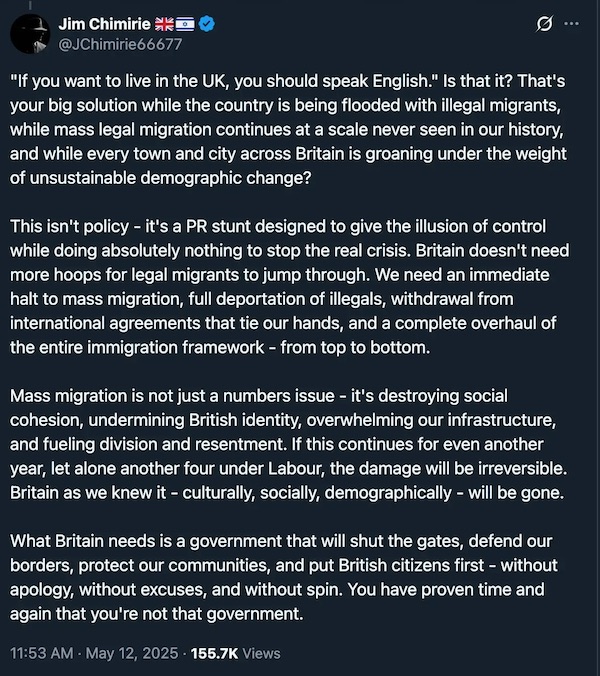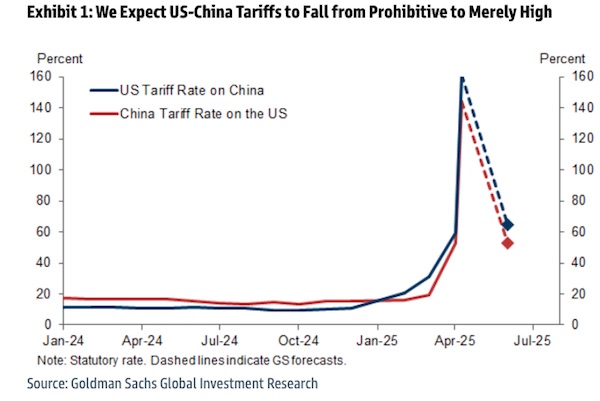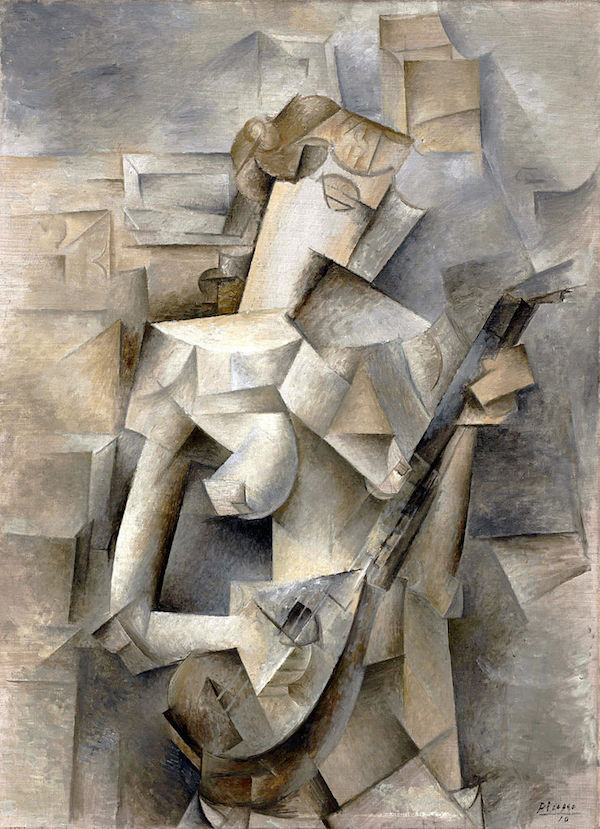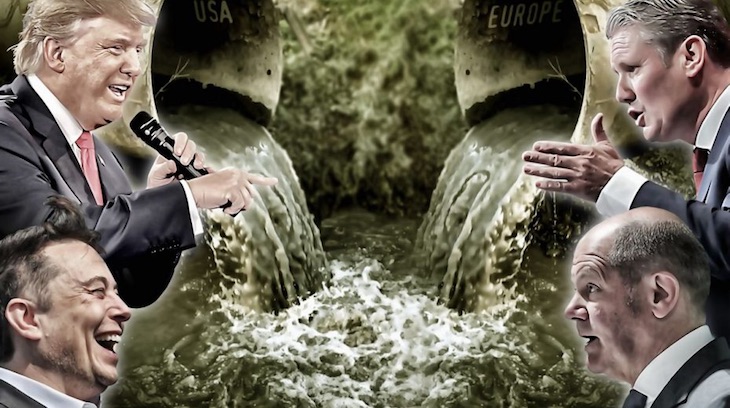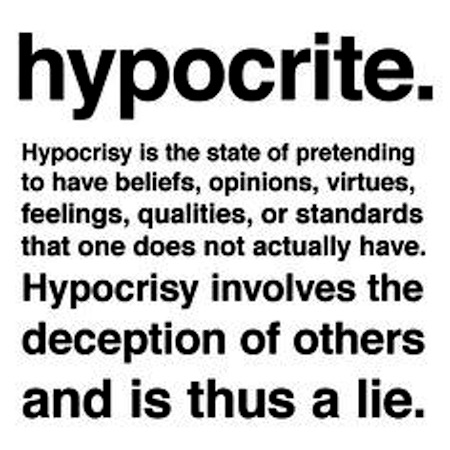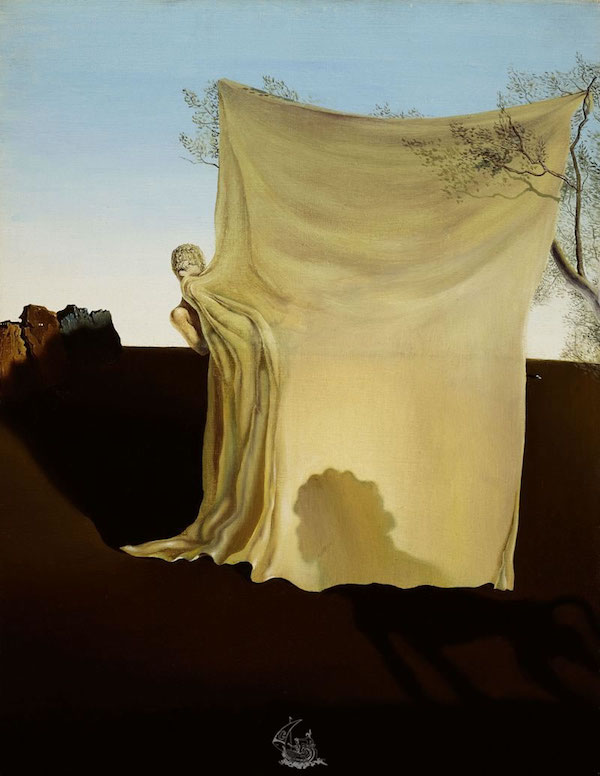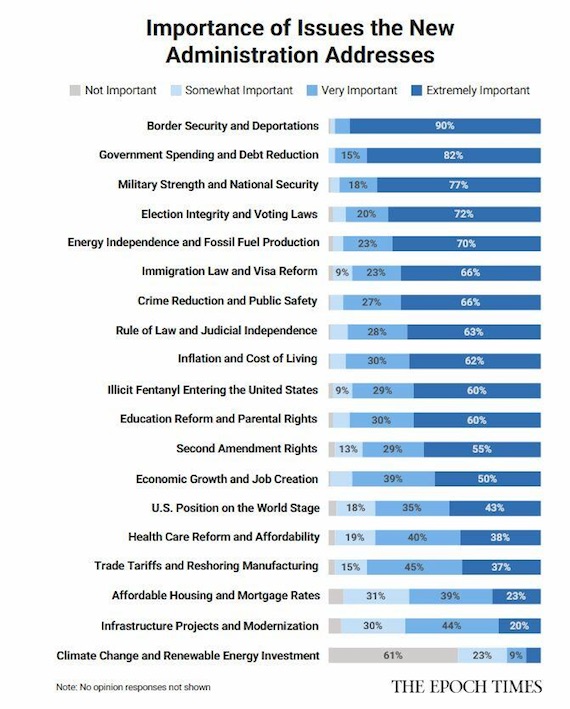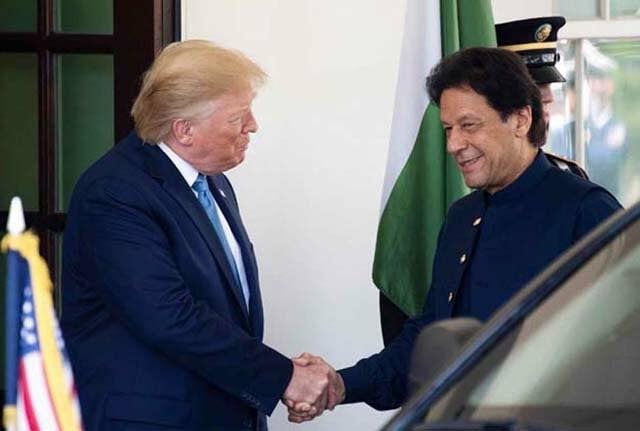
Rembrandt van Rijn The resurrection of Christ 1639

https://twitter.com/DD_Geopolitics/status/1936119538833408128
BANNON: My issue isn’t whether Iran has a nuke. My issue is that Netanyahu, for his own political dilemma, created a false sense of urgency. He pushed the salesman upsell—we have to have regime change. This is the Iraq War all over again. It’s phony and obvious. pic.twitter.com/D83jFgXBzs
— Grace Chong, MBI (@gc22gc) June 21, 2025
https://twitter.com/JackPosobiec/status/1936078927698526683
BANNON: The national debt is $230,000 per household. Don’t think we’ll ever pay a penny of it. Now look at Persia—three carrier battle groups. Who’s paying? Not Israel. Not the Gulf Emirates. You are. And it’s not just money. It’s blood and treasure. Your sons and daughters. pic.twitter.com/whuq5zIIWm
— Grace Chong, MBI (@gc22gc) June 20, 2025
Macgregor
"Most of what is being heard in the mainstream media about Iran is one big LIE. Iran is not about to surrender. It's not going to crumble. There will be no uprising."@DougAMacgregor noted that these same voices were the ones claiming Russia was going to fall apart in 2022… pic.twitter.com/YkmYPqdmsW
— Rachel Blevins (@RachBlevins) June 20, 2025
Ritter
Scott Ritter is spot on with this analysis. Israel went all-in on a quick decapitation war, and that strategy has failed. Netanyahu has just bet the farm on the roll of a dice and lost. pic.twitter.com/tt1rArM92o
— Kerry Burgess (@KerryBurgess) June 20, 2025


“A Spectacular Military Success”
If the situation pans out the way it’s presented today, much of the criticism, domestically and internationally, will subside. But Iran has yet to react. And did they really demolish Fordow? Without a nuke?
• Trump: Iran’s Nuclear Facilities “Completely & Totally Obliterated” (ZH)
President Trump addressed the nation at 2200ET and said that with “massive precision strikes”, Iran’s nuclear facilities have “been completely and totally obliterated” in a “spectacular military success.” He warned Iran (“the bully of the Middle East”) that if they do not come to peace then there are many other targets: “There will be either peace; or tragedy for Iran worse than the likes of which we have seen over the last eight days.” “If peace does not come quickly,” we will go after the rest of the nation with “speed and skill. ” He ended the speech by saying “God bless The Middle East, Gold bless Israel, and God bless The United States.”
BREAKING: President Trump says Iran's nuclear facilities have been "totally obliterated." pic.twitter.com/doentvmWLS
— KanekoaTheGreat (@KanekoaTheGreat) June 22, 2025
[..]
* * *
Update (2133ET): Fox News correspondent Jennifer Griffin revealed that the B-2 bombers spotted heading to Guam were part of a calculated deception to draw attention westward: “It’s notable how much deception was involved in this operation. All eyes were looking west towards Guam.” “The 30,000-pound bunker buster bombs were dropped at Fordo. And as we have reported, there are two entrances to Fordo.” “At least two bombs at each, two entrances, which suggests at least two B-2s were involved over Fordow. My suspicion is that there were more.”Sean Hannity revealed he spoke directly with President Trump, who confirmed the scope of the U.S. strike on Iran’s Fordow nuclear facility: “Six “bunker buster” bombs were dropped by multiple B-2 stealth bombers. Thirty Tomahawk cruise missiles were launched from U.S. submarines positioned approximately 400 miles away. Hannity added, “Everyone is out of harm’s way for now.”
JUST IN: Sean Hannity says he spoke with President Trump, reveals 6 'Bunker Buster' bombs were dropped on Iran's Fordo nuclear plant.
– 6 'Bunker Buster' bombs dropped from multiple B-2s
– 30 Tomahawk missiles launched by U.S. submarines from ~400 miles away.
"Everyone is out… pic.twitter.com/JLz0U6fY94
— Collin Rugg (@CollinRugg) June 22, 2025

“..if peace does not come quickly, we will go after those other targets with precision, speed and skill. Most of them can be taken out in a matter of minutes.”
• Trump Hails ‘Spectacular’ US Raid Against Iran (RT)
In a televised address from the White House on Saturday night, US President Donald Trump claimed that American forces had “completely obliterated” three Iranian nuclear sites in a major overnight operation. He described the strikes as a “spectacular military success” and threatened further action if Tehran does not pursue peace. Below is the full transcript of President Trump’s address to the nation:
“Thank you very much. A short time ago, the US military carried out massive, precision strikes on the three key nuclear facilities in the Iranian regime. Fordo, Natanz and Esfahan. Everybody heard those names for years as they built this horribly destructive enterprise. Our objective was the destruction of Iran’s nuclear enrichment capacity and a stop to the nuclear threat posed by the world’s number one state sponsor of terror. Tonight, I can report to the world that the strikes were a spectacular military success. Iran’s key nuclear enrichment facilities have been completely and totally obliterated. Iran, the bully of the Middle East, must now make peace. If they do not. Future attacks would be far greater and a lot easier.
For 40 years, Iran has been saying. Death to America, death to Israel. They have been killing our people, blowing off their arms, blowing off their legs, with roadside bombs. That was their specialty. We lost over 1,000 people and hundreds of thousands throughout the Middle East, and around the world have died as a direct result of their hate in particular. So many were killed by their general, Qassim Soleimani. I decided a long time ago that I would not let this happen. It will not continue. I want to thank and congratulate Prime Minister Bibi Netanyahu. We worked as a team like perhaps no team has ever worked before, and we’ve gone a long way to erasing this horrible threat to Israel. I want to thank the Israeli military for the wonderful job they’ve done.
And most importantly, I want to congratulate the great American patriots who flew those magnificent machines tonight, and all of the United States military on an operation the likes of which the world has not seen in many, many decades. Hopefully, we will no longer need their services in this capacity. I hope that’s so. I also want to congratulate the chairman of the Joint Chiefs of Staff, General Dan ‘Razin’ Caine, spectacular general, and all of the brilliant military minds involved in this attack. With all of that being said, this cannot continue. There will be either peace, or there will be tragedy for Iran, far greater than we have witnessed over the last eight days.
Remember, there are many targets left. Tonight’s was the most difficult of them all, by far, and perhaps the most lethal. But if peace does not come quickly, we will go after those other targets with precision, speed and skill. Most of them can be taken out in a matter of minutes. There’s no military in the world that could have done what we did tonight. Not even close. There has never been a military that could do what took place just a little while ago. Tomorrow, General Caine, Secretary of Defense Pete Hegseth will have a press conference at 8am at the Pentagon. And I want to just thank everybody. And, in particular, God. I want to just say, we love you, God, and we love our great military. Protect them. God bless the Middle East. God bless Israel and God bless America. Thank you very much. Thank you.”

“Trump’s Pentagon planned for every imaginable Iran response long before Saturday night’s bombing sorties, officials said. And almost immediately after the bombs dropped, signs of heightened security emerged.”
• With Six Bunker-Busting Bombs, Trump Just Rewrote History (JTN)
As early as 2011, Donald Trump sounded the alarm that Iran must not become a nuclear power or the world would face unspeakable havoc. “Iran’s nuclear program must be stopped by any and all means necessary. Period,” the future president wrote in his book Time to Get Tough. “We cannot allow this radical regime to acquire a nuclear weapon that they will either use or hand off to terrorists.” Fourteen years after penning that book, America’s 47th president took decisive action Saturday night to ensure Tehran didn’t reach that critical goal on his watch, dispatching six bunker-busting bombs aboard B2 bombers and 30 Tomahawk missiles fired from submarines to “obliterate” the Iranian regime’s three primary nuclear weapons facilities at Fordow, Natanz and Esfahan.
Early reports indicate the six GBU-57 bunker busting bombs imploded Fordow, a mountain-fortified facility that evaded decades of UN inspections and tantalized the world with a never-ending threat of Iranian nuclear holocaust as its mullahs chanted “Death to America. Death to Israel.” Trump declared himself pleased with the impact of his history-shaping decision, and pointedly made clear to Iran’s mullahs — led by the Ayatollah Khamenei — that their next step would determine the final outcome of the regime’s two-decade quest for an atomic bomb. “Iran, the bully of the Middle East, must now make peace. If they do not, future attacks will be far greater and a lot easier,” Trump warned.
“There will be either peace or there will be tragedy for Iran far greater than we have witnessed over the last eight days,” he added. “Remember, there are many targets left. Tonight’s was the most difficult of them all by far, and perhaps the most lethal. But if peace does not come quickly, we will go after those other targets with precision, speed and skill. Most of them can be taken out in a matter of minutes.”
Israel and the United States both braced for the worst possible response from Iran – more missile attacks or a possible terrorism strike – while hoping the earthquake-sized thunder of dropping the largest conventional bomb in world history may have shaken the Iranian regime toward a negotiated settlement. Trump’s navigation of the Iranian crisis demonstrated a redefinition of the use of American military might, directly pressuring diplomatic efforts toward peace by delivering surgical strikes with shock and awe destruction. He gave Iran 60 days to make a deal to forego its pursuit of a nuclear weapon and its enrichment of uranium, and on the 61st day green-lighted Israel to begin a military bombardment to destroy Tehran’s nuclear program. The first strikes decapitated Iran’s military leadership and disabled Tehran’s once-revered air defenses.
With unrivaled air superiority achieved by Israel, Trump then lulled Iran into thinking he would give the mullahs two weeks for more negotiations. In fact, he gave them just two days before unleashing Saturday night’s U.S. attacks that delivered utter destruction to Iran’s three most important nuclear development sites. While a military success, Trump and his team as well as his partner, Israeli Prime Minister Benjamin Netanyahu, remain acutely aware there still may be peril ahead for the world. Iran’s vaunted Hezbollah sleeper terror cells and possible missile strikes against U.S. assets or its allies in the Middle East remain atop the worry list. Trump’s Pentagon planned for every imaginable Iran response long before Saturday night’s bombing sorties, officials said. And almost immediately after the bombs dropped, signs of heightened security emerged.
Israel went to a new level of alert demanding its citizens avoid any unnecessary public activities. New York City raised its threat level. And U.S. warplanes and ships patrolled aggressively for any sign of retaliation. In the meantime, Trump signaled unequivocally that Iran will choose the next edition of its fate: More attacks will bring more U.S. military might; more negotiations might bring a new era of peace and prosperity. The choice, Trump said, is Iran’s to make. Meanwhile, the president made sure to address the likely naysayers in the globalist community at large, the far-left of the American Democrat Party that pursued fruitless deals with Iran for more than a decade and the isolationists in his own party who immediately cackled the U.S. bombings were unjustified, illegal or even impeachable
During his nationally televised post-bombing address, Trump enumerated the deadly toll Iran’s violence took on Americans for five decades starting with the 1979 embassy hostage crisis followed by deadly bombings in Lebanon and Saudi Arabia in the 1980s and 1990s and then the Iranian-made roadside bombs that killed and maimed hundreds of U.S. soldiers during the Iraq War. “For 40 years, Iran has been saying ‘Death to America, Death to Israel.’ They have been killing our people, blowing off their arms, blowing off their legs, with roadside bombs,” Trump reminded Americans. “That was their specialty. We lost over 1,000 people, and hundreds of thousands throughout the Middle East and around the world have died as a direct result of the hate.” Whether that carnage continues or subsides after Saturday’s massive bombing now rests with Iran.

Praise from the child killer. Yay!
• US Strike On Iran Will ‘Change History’ – Netanyahu (RT)
Prime Minister Benjamin Netanyahu has praised US President Donald Trump for his “bold decision” to join the Israeli bombing campaign against Iran. In a video address posted Saturday night, after the US carried out strikes against facilities in Fordow, Natanz, and Isfahan, Netanyahu called the move a turning point that “has created a pivot of history that can help lead the Middle East and beyond to a future of prosperity and peace.” “Congratulations, President Trump,” Netanyahu said. “Your bold decision to target Iran’s nuclear facilities with the awesome and righteous might of the United States will change history.”
President Trump and I often say: ‘Peace through strength.’
First comes strength, then comes peace.
And tonight, @realDonaldTrump and the United States acted with a lot of strength. pic.twitter.com/7lTWCZkgw7
— Benjamin Netanyahu – בנימין נתניהו (@netanyahu) June 22, 2025
The United States launched airstrikes late Saturday, hitting at least three Iranian facilities. According to US officials, B-2 stealth bombers reportedly dropped bunker-busting bombs during the raid on Fordow, while American submarines launched dozens of Tomahawk missiles against Natanz and Isfahan. President Trump described the strike as “very successful” and warned that Tehran must engage in negotiations or face further military action if it dares to retaliate.

“This act… was unfortunately carried out in the shadow of indifference..”
• Iran Accuses US Of Nuclear Treaty Violation (RT)
Iran has accused the United States of violating international law and the Non-Proliferation Treaty (NPT) with its overnight strikes on key nuclear facilities, while assuring the public that no radioactive contamination has been detected at the targeted sites. In an official statement released early Sunday, the Atomic Energy Organization of Iran (AEOI) confirmed that US airstrikes hit its nuclear sites at Fordow, Natanz, and Isfahan at dawn, calling the operation an illegal and “brutal” act. Iranian authorities criticized Washington for publicly claiming responsibility for the attacks on sites that had been operating under the supervision of international inspectors. “This act… was unfortunately carried out in the shadow of indifference and even with the support of the International Atomic Energy Agency,” the statement claimed.
A separate statement from Iran’s Center for the National Nuclear Safety System confirmed that emergency inspections had been conducted at all three sites. “No signs of contamination have been recorded,” the center said, adding that there is “no danger to the residents living around the aforementioned sites.” The AEOI vowed that Iran’s nuclear program would not be halted by what it described as “evil conspiracies.” It praised the resilience of Iranian scientists and announced that legal measures would be pursued in response to the strikes. “We will not allow the development of this national industry, which is the result of the blood of nuclear martyrs, to be stopped,” the organization said.
The United States struck the facilities in Fordow, Natanz, and Isfahan early Sunday morning as part of a broader Israeli military campaign described by the IDF as targeting Iran’s missile and nuclear infrastructure. Iran has not yet announced any military response but has characterized the strikes as “criminal” and a breach of sovereign rights. President Trump warned Tehran against retaliation, threatening further US attacks. The airstrikes mark the most direct US action against Iran’s nuclear program in years and come amid soaring tensions following ongoing exchanges of drones and missiles between Israel and Iran.

Tulsi saving face?!
• Trump Says US Intel of Iran’s Nuclear Program “Was Wrong”, Tulsi Responds (ET)
President Donald Trump said on June 20 that his director of national intelligence’s assessment in March that Iran had yet to decide on building a nuclear weapon was wrong. Trump made the remarks to reporters on Friday while standing next to Air Force One at the Morristown Municipal Airport in New Jersey. The president was asked about the U.S. intelligence community’s assessment that it had no evidence that Iran was building a nuclear warhead before Israel’s strikes on its military and nuclear sites last week. “Well, then my intelligence community is wrong,” Trump said. “Who in the intelligence community said that?” When he was told that it was his director of national intelligence, Tulsi Gabbard, who gave those remarks to lawmakers in March, Trump replied, “She was wrong.”
After Trump’s comments, Gabbard took to social media to share a clip of her March testimony to lawmakers on Capitol Hill, and accused the media of twisting her words. “The dishonest media is intentionally taking my testimony out of context and spreading fake news as a way to manufacture division,” Gabbard wrote. “America has intelligence that Iran is at the point that it can produce a nuclear weapon within weeks to months, if they decide to finalize the assembly. President Trump has been clear that can’t happen, and I agree.” Gabbard said in her testimony at the time that the intelligence community had determined that Iran was not currently building a nuclear weapon. However, as part of that assessment, she said there were alarming signals that warranted continuous monitoring for any change.
The signs Gabbard mentioned included indications that Iranian decision-makers who wanted the country to have nuclear arms were becoming increasingly emboldened in their pursuit, and that Iran’s enriched uranium stockpiles were at “unprecedented” levels for a state without nuclear weapons. In remarks to reporters, Trump reiterated that he believes, based on the quantity of enriched uranium that Iran currently possesses, that the regime could develop a nuclear bomb “within a matter of months.” “We can’t let that happen,” Trump said, adding that he believes his current military intelligence is more accurate than what then-President George W. Bush used as a pretext to invade Iraq in 2003, which Trump opposed.
He was asked what makes the current situation different than the one 22 years ago, and Trump said: “Well, there were no weapons of mass destruction [in Iraq]. I never thought there were.” “There was a nuclear age [in 2003], but nothing like it is today. And it looked like I’m right about the material that they’ve gathered already,” he said. The United Nations’ nuclear watch group said early last month that Iran had more than 900 pounds of 60 percent enriched uranium at the time. To make a nuclear bomb, 90 percent enriched uranium is required. The group said that if Iran chooses, it could enrich enough stockpiled uranium to make a bomb in a matter of days, but building and testing a warhead could take much longer.
In response to comments from Iran’s foreign minister earlier on Friday, who said if the United States is serious about negotiations, it must first call Israel to order a stop to the airstrikes, Trump said it’s difficult to make that request now. “If somebody is winning, it’s a little bit harder to do than if somebody’s losing,” he said. “But we’re ready, willing, and able, and we’ve been speaking to Iran, and we’ll see what happens.” Trump said he is giving Iran two weeks to “see whether or not people come to their senses” before he makes a final decision on whether to involve the U.S. military in the conflict after Israel’s surprise airstrikes on Iranian military and nuclear sites last week. “I’m giving them a period of time, and I would say two weeks would be the maximum,” he said. The president said he believes that Europe is not going to be able to help in negotiations with Iran to end the conflict.

Peaceful purposes only?!
• Trump’s Envoy Urges Musk To Provide Free Starlink To ‘Friends’ In Iran (RT)
US Presidential Envoy for Special Assignments Richard Grenell has urged SpaceX CEO Elon Musk to provide free Starlink access across Iran so that his “friends” can have uninterrupted “access to information” amid an escalating Israeli bombing campaign against Tehran. “Can you turn on Starlink for free in Iran for the next few weeks, @elonmusk? My friends inside Iran don’t have regular access to information right now. I’ll chip in a donation and I think others would, too,” wrote Grenell, the former acting Director of National Intelligence, in a post on X. Musk has not yet responded to the request, at least not publicly. The billionaire previously said that the “beams are on,” indicating the service is technically available – although accessing Starlink requires a special satellite dish to receive and transmit signals.
Starlink’s constellation of low-Earth orbit satellites was originally promoted as a solution for providing high-speed, low-latency internet to remote and rural areas. President Trump has praised the system for offering vital connectivity in disaster zones, particularly after hurricanes Helene and Milton, when traditional networks failed. However, the system has also proven critical for frontline coordination and drone warfare. SpaceX has supplied the Ukrainian military with Starlink since the escalation of the conflict with Russia in 2022, delivering more than 40,000 terminals. Kiev’s forces have become fully dependent on Starlink, and disabling it would result in the collapse of the “entire frontline,” Musk claimed in March.
When Israel launched a surprise “pre-emptive” attack against Iranian nuclear facilities last week, its intelligence agency Mossad reportedly activated sleeper cells who had smuggled drones into Iran to strike defensive infrastructure from within. With the possibility of Washington joining the bombing campaign growing, Iranian authorities have severely restricted communications, isolating the country’s internet from the rest of the world. They also urged citizens to delete WhatsApp, accusing Israel of using the Meta-owned app to spy on users. Richard Grenell, a former US ambassador to Germany and acting Director of National Intelligence, now serves as the Presidential Envoy for Special Missions under Donald Trump. In this role, he has handled a wide range of diplomatic crises and international back-channel efforts.

From before the attack.
• US, Europe Plotting Iran’s Next Leader While Talking ‘Diplomacy’ (Sp.)
On Thursday, White House Press Secretary Karoline Leavitt indicated a “substantial” possibility of negotiations with Tehran, with a decision on further steps to be made within the next two weeks. Trump is not afraid to use force against Iran, Leavitt stressed, adding that the US continues contacts with Iran in both direct and indirect formats. According to US and European diplomats – who, of course, are just innocent bystanders in the Israel-Iran conflict – there are already secret conversations going on about who might lead Iran after the dust settles, CBS News reports.
They are also whispering about securing nuclear sites, and how to deal with a potential regional environmental disaster if Iran’s nuclear facilities are hit. Apparently, there’s still a “last shot” for talks to stop the Israel-Iran conflict, insiders told the outlet. Turkiye, Oman, Italy, Norway – they’re all ready to host US-Iran talks if Tehran chooses diplomacy. But as Iranian FM Abbas Araqchi put it: “As long as the aggression and attacks continue, there is simply no room for talk of dialogue or diplomacy,” per Fars News Agency.

For Kashmir.
• Pakistan Recommends Trump for Nobel Peace Prize (RT)
The Pakistani government has formally recommended US President Donald Trump for the 2026 Nobel Peace Prize, citing his mediation efforts in ending the recent military conflict between Islamabad and New Delhi. India, however, insists Trump played no role in de-escalating the tensions. Relations between the two nuclear-armed neighbors escalated in late April after a deadly terrorist attack in Pahalgam in Indian-administered Kashmir, which New Delhi blamed on Pakistan-backed militants. In a statement on Friday, the Pakistani government announced it “decided to formally recommend” Trump for the 2026 Nobel Peace Prize “in recognition of his decisive diplomatic intervention and pivotal leadership during the recent India-Pakistan crisis.”
According to Islamabad, the American leader helped de-escalate a “rapidly deteriorating situation” that could have triggered “catastrophic consequences for millions in the region and beyond.” It also expressed gratitude to Trump for offering to help resolve the longstanding Kashmir dispute between Pakistan and India. The US president has repeatedly claimed credit for the ceasefire on May 10 that halted the hostilities between the two neighboring states. However, the Indian government has denied that the US president played a decisive role. Speaking at a press briefing on Wednesday, Indian Foreign Secretary Vikram Misri revealed that during a phone conversation with Trump the previous day, Prime Minister Narendra Modi stressed that “India has never accepted mediation [to resolve its dispute with Islamabad over Jammu and Kashmir], does not accept and will never accept it.”
Also on Wednesday, the US president invited Pakistan Army chief Asim Munir to a private lunch meeting, after the field marshal similarly called for Trump’s Nobel nomination, Reuters reported, citing White House spokeswoman Anna Kelly. On Saturday, in a post on his Truth Social platform, Trump stated that he and Secretary of State Marco Rubio had arranged a “wonderful treaty between the Democratic Republic of the Congo and the Republic of Rwanda in their war.” “I won’t get a Nobel Peace Prize for this, I won’t get a Nobel Peace Prize for stopping the War between India and Pakistan, I won’t get a Nobel Peace Prize for stopping the War between Serbia and Kosovo, I won’t get a Nobel Peace Prize for keeping Peace between Egypt and Ethiopia… and I won’t get a Nobel Peace Prize for doing the Abraham Accords in the Middle East,” Trump lamented.
Speaking to reporters the previous day, the Republican made similar claims about his role in resolving those conflicts. “I should have gotten [the Nobel Peace Prize] four or five times,” he insisted, claiming that this will not happen “because they only give it to liberals.”

In theory, yes.
• Iran Has The Right To Use Nuclear Energy For Peaceful Purposes – Putin (RT)
Iran has the right to use nuclear technology for peaceful purposes, Russian President Vladimir Putin has said in an interview. After the plenary session of the St. Petersburg International Economic Forum (SPIEF) on Friday, he spoke with Nadim Koteich, the moderator of the session and general manager of Sky News Arabia. ”We believe that Iran has the right to use nuclear power for peaceful purposes. And we are prepared, as we have been in previous years, to provide the necessary support in this field,” the Russian president said. Putin added that Russia opposes the spread of nuclear weapons in any country. “The International Atomic Energy Agency [IAEA] confirms that there is no evidence of Iranian efforts to acquire nuclear weapons.”
Last week, Israel began a series of strikes against Iran and issued serious warnings regarding the country’s nuclear program. It claimed that Tehran is rapidly nearing a critical point in its alleged pursuit of nuclear weapons, saying the strikes were essential to prevent this. Iran, which maintains that its nuclear program is intended solely for peaceful purposes, responded with missile and drone strikes against Israel. In his interview on Friday, Putin urged both sides to resolve the conflict through negotiations. He added that Moscow has repeatedly informed Israel of the lack of evidence regarding Tehran’s intentions to create nuclear weapons. In a report earlier this month, IAEA chief Rafael Grossi stated that “Iran is the only non-nuclear-weapon state in the world that is producing and accumulating uranium enriched to 60%.”
Meanwhile, US intelligence agencies have found no evidence that Iran is developing nuclear weapons. However, President Donald Trump insisted that Iran was “very close” to acquiring them at the time of Israel’s attack. He has demanded Iran’s “unconditional surrender” and warned that the US might intervene. According to the Kremlin, Putin has a “complete picture” of the situation, as one of the few leaders to speak directly with the heads of Israel, Iran, and the US. In a late-night Q&A session on Wednesday, Putin told journalists that resolving the conflict should include mutual security guarantees – protecting both Iran’s right to peaceful nuclear technology and Israel’s right to security.

“I hope that the Ukrainian leadership will follow the national interests of the country and not the interests of the third parties that stand behind the regime..
• Kiev’s Backers Don’t Want The Conflict Settled – Putin (RT)
The “third parties” that back Kiev are not interested in ending the Ukraine conflict, but are instead using the country for their own goals, Russian President Vladimir Putin has told Sky News Arabia’s Nadim Koteich. On Friday, during the plenary session of the St. Petersburg International Economic Forum (SPIEF), moderated by Koteich, Putin stated that Moscow is not seeking the surrender of Ukraine. “We insist on the recognition of the realities that have developed on the ground,” he added. After the session, he gave an interview to Sky News Arabia in which he reiterated that Kiev should respect the will of the people who voted to join Russia. “I hope that the Ukrainian leadership will follow the national interests of the country and not the interests of the third parties that stand behind the regime,” Putin said.
“Ukraine deserves a better future, and not to be a tool in the hands of the third parties that are against Russia.” He added that Ukrainian neutrality and non-nuclear status are necessary for long-term stability in the region. During a Q&A session on Friday, Putin said that negotiations held in Istanbul in early 2022, shortly after the escalation of the Ukraine conflict, fell apart under pressure from “neocolonial forces.”Earlier in June, top Russian negotiator and presidential aide Vladimir Medinsky told RT’s Rick Sanchez that Ukraine had a chance to secure a deal on more favorable terms had it not withdrawn from negotiations in 2022. According to Medinsky, Kiev opted to walk away after consulting with the US and UK.

“Russia’s Resilience Exposes Western Policymakers’ ‘Shocking’ Incompetence.”
• Putin’s Message to the West: Your Dominance is Over – BRICS+ the Future (Sp.)
In his speech at the St Petersburg International Economic Forum on Friday, Vladimir Putin touched on array of issues, from Western neocolonialism and emerging global power centers to Russia’s economic prospects and defense exports potential. Sputnik asked experts in each of these areas to share their thoughts. The Russian president’s remarks at SPIEF about the need for a new model of development free of “golden billion” neocolonialism “is based on the observation of the world balances of power that have unfolded since the US financial crisis of 2008,” veteran Brussels-based geopolitical analyst Paolo Raffone told Sputnik. “Today the emerging countries have emerged to the extent of being comparable individually (China) or collectively (BRICS+) to overcome Western countries. [Putin’s] remarks are addressed to the US, but are also a warning to the European former powers that still have not abandoned the outdated path of eurocentrism,” Raffone explained.
Putin’s comments are geopolitical realism boiled down to its essence, “calling to rethink the national and international policies for the economy as well as security,” Raffone said. The Russian president isn’t alone in his thinking, the observer pointed out, highlighting Italian Defense Minister Guido Crosetto’s bombshell remarks this week about the EU and NATO’s loss of relevance, total dependence on China, and failure to engage diplomatically with the Global South. Western leaders became the “victims of their [own] stilted paradigm” about Russia and its economy, retired Jawaharlal Nehru University professor and Russia expert Dr. Anuradha Chenoy told Sputnik, commenting on Putin’s remarks relating to Russia’s emergence as the 4th largest economy globally, and the largest in Europe.
Treating Russia as a glorified “gas station” with no prospects for development, and slapping it with a severe, unilateral sanctions regime in 2022, the West expected the Russian economy and ruble to collapse.Instead, “the opposite happened,” Chenoy said, with the state, banks and industry leveraging finances generated from oil wealth to ramp up domestic production and generate growth. The West’s theories failed, as have their attempts to isolate Russia. “In fact, Russia now has turned to China, BRICS countries and the Global South, which will be their long-term partner. The West and its policies of unfair terms if trade, use of threat and force” ended up isolating them, not Russia, the veteran academic emphasized. “I am shocked at the great lack of collective knowledge and information [on the part] of the West, and their institutions,” Chenoy said, highlighting that Russia’s immense natural resources, the rebuilding of industry and infrastructure have been obvious to Russia watchers for decades.
“Russia will surely reestablish itself as one of the foremost exporters of arms in the world in the coming years,” former Swedish Armed Forces officer and military analyst Mikael Valtersson told Sputnik, commenting on Putin’s mention of Russian plans to expand defense cooperation with friendly countries. “The fast Russian adaptation to the needs at the battlefield and a strong Russian comeback in Ukraine has put an end to western dreams of the elimination of Russia as a strong competitor in the global arms market,” Valtersson said, highlighting the competitive edge Russia has honed from its experiences, including:
• battle-proven, upgraded weaponry. “This is especially important when it comes to air, missile, drone and EW-technology,” according to the observer.
• a “very large capacity to produce weapons quickly for the global military market…a capability the Western countries lack.”
• readiness to allow buyers to freely use the advanced weapons they purchase, without secret kill switches or other restrictionsValtersson expects these factors to strengthen Russia’s position in the Global South, and in turn to threaten Western arms exports, especially Europe’s. “Europe will probably be forced to focus more on domestic sales within Europe, while the US must reduce restrictions and political demands in conjunction with arms exports. This might become even more acute in light of a growing hesitation to see the US as a reliable strategic partner by many countries,” Valtersson predicts. NATO might try to preserve markets by pressuring countries against buying Russian arms, “but this strategy will quickly lose power since Western economic power is diminishing,” the observer said, emphasizing that economic power translates into political power. While BRICS accounted for 12% of GDP in 2000, it’s over 40% today.

Who makes these decisions?
• Zelensky Reshuffles Top Brass To Fix Faltering Draft – FT (RT)
Ukrainian leader Vladimir Zelensky has reshuffled his top brass, with the goal of overhauling the country’s flawed and “unpopular” forced mobilization, the Financial Times reported on Saturday. Amid heavy frontline losses, the campaign has been marred by widespread draft-dodging and violent clashes between would-be recruits and mobilization officers. On Friday, Zelensky tapped Brigadier General Gennady Shapovalov to be the commander of Ukraine’s ground forces, replacing Mikhail Drapaty and reassigning several senior officers. According to the Ukrainian HQ, in his new role, Shapovalov will focus on “increasing the combat capability of the army, improve the mobilization system and training of military personnel, and implement innovative approaches to management according to NATO standards.”
Shapovalov previously headed Kiev’s team in the NATO mission to coordinate military assistance to Ukraine. The Financial Times said the new commander will face numerous issues, as the “attempts to reform the Ukrainian mobilization and training process have been sluggish at best.” The draft, the outlet added, has been “unpopular,” while Zelensky is facing Western pressure to lower the draft age. Another problem is a new military contract program aimed at attracting young people between 18 and 24 to the army. However, as of April, only 500 contract soldiers joined the army, the FT reported, citing officials in Kiev.
Shapovalov’s appointment follows nearly three weeks of a leadership vacuum after Drapaty resigned from his post but was later moved to lead Ukraine’s joint forces command, which is aimed at helping align Ukraine’s armed forces with NATO operational methods. In a parting statement, Drapaty – who resigned after accepting responsibility for devastating Russian strikes on military training sites – condemned what he called a “culture of mutual cover-up and impunity” within the military. ”We will not win this war unless we build an army where honor is action, not a word, and responsibility is the basis of trust,” he said.
According to RBK-Ukraine, Drapaty’s departure also followed reported tensions with Ukrainian Commander-in-Chief Aleksandr Syrsky. A source told the outlet that Drapaty privately expressed ambitions to take over Syrsky’s role. The two have had diverging battlefield strategies. Ukraine announced general mobilization in 2022, barring most men between the ages of 18 and 60 from leaving the country. In 2024, Kiev tightened the conscription laws and lowered the draft age from 27 to 25 to recoup growing battlefield losses. The mobilization campaign has resulted in numerous violent altercations between draft officers and reluctant draftees, while many have sought to flee the country at significant personal risk.

Greatly.
• Europe’s Anti-Russia Hysteria Speeds Its Decline (Sp.)
No one is excluding Europe from modern processes – European countries are excluding themselves with their policy choices, Milorad Dodik, President of Republika Srpska, told Sputnik on the sidelines of the 2025 St. Petersburg International Economic Forum (SPIEF). Europe is sabotaging itself by unjustifiably meddling in the Ukraine conflict and taking an anti-Russian stance, said the President of Republika Srpska. The European Union lost pivotal energy resources that it used to receive at a low price from Russia, Milorad Dodik stressed. “It is clear that Europe, if it even survives in the form of the European Union, is headed toward economic and other forms of marginalization,” he said. Europe is scrambling for solutions but somehow drifting even further from them. That’s exactly why I agree that the Global South’s role is only growing more crucial, said Dodik.
SPIEF sets an ideology-free stage for a New Global Order, underscored the leader of Bosnia’s Serb autonomy. A surge of cooperation agreements is signed here, offering a prime opportunity to showcase the Russian economy’s cutting-edge achievements across all modern sectors. What draws crowds to the forum is its host — Russia — a nation reshaping the global value game, noted Dodik. A total of 1,060 agreements worth 6.3 trillion rubles ($80 billion) have been signed on the sidelines of the 2025 St. Petersburg International Economic Forum (SPIEF), the Organizing Committee’s executive secretary, Anton Kobyakov, said on Saturday. Over 140 countries sent their representatives to the forum, Kobyakov added.




Make this make sense! pic.twitter.com/IO3oBgTPpD
— Noctis Draven (@DravenNoctis) June 20, 2025
Ursula
NGOs should not be funded by the government to lobby elected representatives! https://t.co/ZY7s0jQ4dC
— Elon Musk (@elonmusk) June 20, 2025
EV
Wow. That puts market sizes into perspective. pic.twitter.com/ljkTR3fScY
— Simon Kuestenmacher (@simongerman600) June 21, 2025
A crossover between Chekhov's Gun, Schrödinger's Cat, Occam's Razor, and Murphy's law. pic.twitter.com/09cdTVOm4U
— Massimo (@Rainmaker1973) June 21, 2025
Snowy owl family
[🎞️ furbabiesplus, ai]pic.twitter.com/O36Yknwamx
— Massimo (@Rainmaker1973) June 21, 2025


Support the Automatic Earth in wartime with Paypal, Bitcoin and Patreon.









